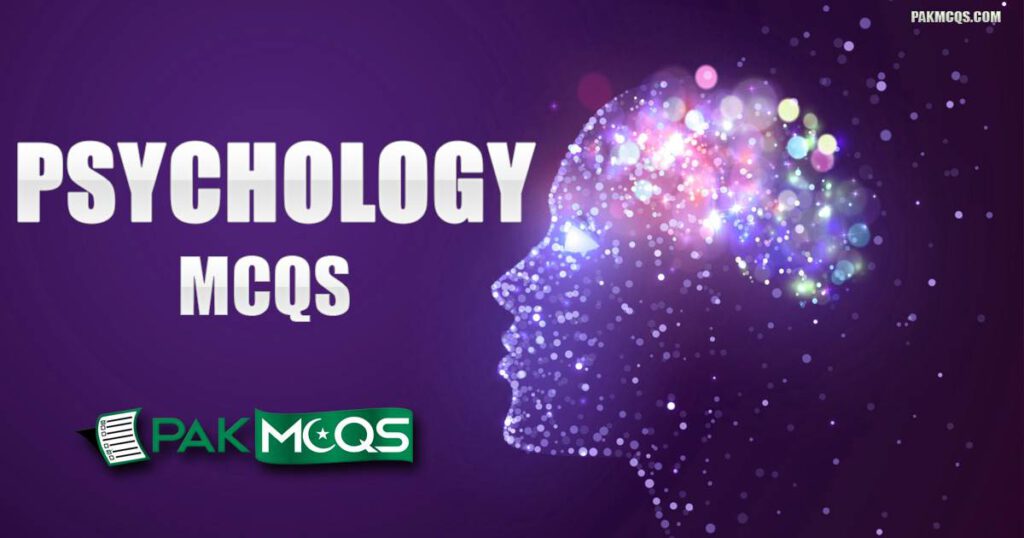A. Conditioned stimulus
B. Unconditional responses
C. Conditioned response
D. Unconditioned stimulus
Psychology Mcqs
Psychology Mcqs for Preparation – These Multiple Choice Questions are important for Lecturer Psychology, Clinical psychologist, Counselling psychologist, Educational psychologist and Forensic psychologist Jobs tests. Psychology Mcqs questions are very important for all type of exams conducted by Fpsc, Nts, Kppsc, Ppsc, Spsc, Bpsc, Ots, Uts, Pts, Cts, Ats, etea and other testing agencies of Pakistan.
| PSYCHOLOGY MCQS | |||
|---|---|---|---|
| 1. Introduction to Psychology | 2. Emotions | ||
| 3. Therapy | 4. Memory | ||
| 5. Intelligence | 6. Infancy And Childhood | ||
| 7. Health Psychology | 8. Forensic Psychology | ||
| 9. Branches of Psychology | 10. Attitudes, Attributions And Social Cognition | ||
| 11. Adolescence And Adulthood | 12. Abnormal Psychology | ||
| 13. Social Psychology | 14. Sensation And Perception | ||
| 15. Research Methods | 16. Psychology Theories | ||
| 17. Psychological Disorders and their Treatment | 18. Personality | ||
| 19. Organizational Psychology | 20. Nervous System | ||
| 21. Motivation | 22. Methods and Approaches | ||
| 23. Methodology | 24. Major Thinkers in Psychology | ||
| 25. Learning | 26. Language And Thought | ||
| 27. Interpersonal Relations And Group Processes | 28. Industrial Psychology | ||
| 29. Educational Psychology | 30. Developmental Psychology | ||
| 31. Criminal Psychology | 32. Coordination | ||
| 33. Cognitive Psychology | 34. Biological Foundations of Behavior | ||
| 35. Miscellaneous Psychology | 36. | ||
A. Employs his cognitive for solving his problems
B. Observes the behavior of others
C. Considers just one aspect of a problem
D. Both (a) and (b)
A. Trial & error
B. Insight
C. Imitation
D. Doing
A. Observation the people doing work
B. Solving the problems of mathematics
C. Attempting the works of people
D. Repeating the methodology of doing work
A. Observe the other people doing work
B. Makes efforts to do the work by himself
C. Makes efforts to perform the same
D. All of the above
A. A natural act
B. An imitative act
C. An emotional act
D. A social act
A. Learning by trial & error
B. Learning by imitation
C. Learning insight
D. Learning by doing
A. Identification of the problem
B. Realization of the problem
C. Efforts for the solution of problem
D. Remembering the solution of problem
A. He finds an appropriate solution
B. He commits a mistakes
C. He comes across some negative response
D. Both (a) and (b)
A. Has not already available solution to his problems
B. Does not use his intellect
C. Does not commit mistakes
D. Does not retry after failure


